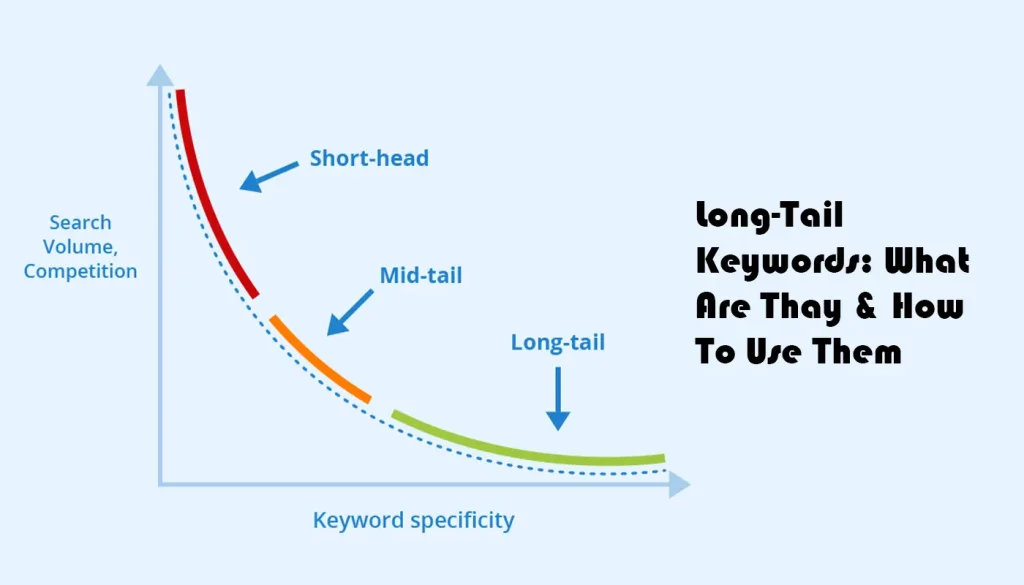Doing keyword research is key to a strong SEO strategy. It lets you find what users type into search engines. This helps you improve your site to show up in organic search results. Keyword research for SEO is crucial because it shows keyword popularity and how hard they are to rank for.
It also gives insights into what users want. By knowing what people search for, you can make your content more relevant and useful. This addresses their needs better.
Keyword research means picking topics and keywords that match what your audience is interested in. You also look at things like monthly search volume (MSV) to understand interest levels. Finding the right balance between MSV and competition is important. High MSV doesn’t always mean it’s easy to rank well.
Focus on keywords that reflect user intent and make your content match what people really want. This approach can make your SEO much stronger. Being seen as an expert through valuable content boosts your Google ranking. This way, you’ll understand your audience better and attract even more people.
What is keyword research?
Keyword research is essential in search engine optimization (SEO) and marketing strategy. It involves finding and analyzing the search terms people enter into search engines. By understanding the search terms used by your target audience, you can optimize your website’s content to improve its visibility in search engine results.

The goal of keyword research is to identify the most valuable keywords for your website. These keywords have a high search volume, relevance to your business or website’s content, and manageable competition.
Search engine optimization is the practice of improving your website’s visibility in search engine results. One of the key components of SEO is using the right keywords in your content. When you understand the search terms used by your target audience, you can strategically incorporate those keywords into your website’s content.
Keyword research involves analyzing search volume, relevance, and competition. The search volume refers to the number of searches conducted for a particular keyword. Relevance indicates how closely a keyword aligns with your website’s content or business. Competition refers to the level of difficulty in ranking for a specific keyword.
By conducting keyword research, you can uncover valuable insights about your target audience’s search habits, understand their needs and interests, and develop a robust SEO and marketing strategy to attract more relevant traffic to your website.
Why is keyword research important?
Keyword research is crucial in optimizing your website’s SEO and achieving online success. You can gain valuable insights into marketing trends, drive traffic growth, acquire new customers, and effectively distinguish between keywords and topics by conducting thorough keyword research.
Marketing Trend Insight
Keyword research allows you to tap into the pulse of your target audience and understand which topics and keywords are currently popular. By staying informed about the latest trends, you can create compelling, relevant content that resonates with your audience and keeps them engaged. This insight helps you stay ahead of the curve and maintain a competitive edge in your industry.
Traffic Growth
Optimizing your content for the right keywords improves your website’s visibility in search engine results. Incorporating well-researched keywords increases the chances of attracting organic traffic to your website. This targeted traffic can result in higher click-through rates, longer dwell times, and increased conversions, ultimately leading to overall traffic growth.
Customer Acquisition
Understanding the search terms potential customers use is key to successful customer acquisition. With thorough keyword research, you can identify the keywords that align with your target audience’s search intent. By tailoring your content and marketing efforts to these keywords, you can effectively attract and engage potential customers, increasing your chances of conversion.
Keywords vs. Topics
The distinction between keywords and topics is essential, even in an era where search engines prioritize user intent. Keyword research still serves as a valuable tool for identifying and organizing topics for your content strategy. By conducting keyword research, you can determine the specific search terms and phrases relevant to your industry, ensuring your content aligns with what your audience is searching for.
In summary, keyword research is essential for understanding marketing trends, driving traffic growth, acquiring new customers, and effectively differentiating between keywords and topics. Investing time and effort into keyword research can optimize your website’s SEO and enhance your online presence.
Elements of Keyword Research
Keyword research is a crucial process in finding the best keywords for your website’s SEO strategy. To effectively conduct keyword research, you need to analyze several elements that contribute to the success of your keyword selection.
1. Relevance
Choosing relevant keywords is essential to ensure that your website’s content aligns with the search intent of your target audience. By selecting keywords relevant to your business or website’s content, you are more likely to attract organic traffic from users actively searching for the information or products you provide.
2. Authority
Google ranks content based on its authority, which is determined by various factors such as the quality of your website, domain age, and backlinks. Choosing keywords that align with your website’s niche and expertise is important to build authority in that specific area. Focusing on keywords that demonstrate your authority increases the chances of your content ranking higher in search engine results.
3. Volume
Search volume refers to the number of times a specific keyword is searched for within a given timeframe. Considering search volume when selecting keywords is important because it indicates the popularity and potential traffic you can attract.
Keywords with higher search volume generally have more competition, so finding a balance between search volume and competition is crucial for optimizing your website’s visibility in search engine results.
By considering these elements of keyword research – relevance, authority, and search volume – you can effectively select keywords that will drive targeted traffic to your website and improve your overall SEO strategy.
How to Research Keywords for Your SEO Strategy
Step 1: Make a list of important, relevant topics based on what you know about your business.
To begin your keyword research process, start by brainstorming and making a list of essential and relevant topics relevant to your business or website. Consider the products or services you offer, the industry you’re in, and the needs of your target audience. These topics will serve as the foundation for your keyword research.
Step 2: Fill in those topic buckets with keywords.
Once you have identified your list of topics, it’s time to fill in those buckets with specific keywords relevant to each subject. Consider the terms and phrases your target audience might use when searching for information about those topics. Be sure to include variations, synonyms, and long-tail keywords to expand your list of potential keywords.
Step 3: Understand How Intent Affects Keyword Research and Analyze Accordingly.
Understanding the intent behind a keyword is crucial for effective keyword research. Consider the purpose and motivation of your target audience when they search for specific keywords. Are they looking for information, ready to purchase, or seeking a solution to a problem? Analyze search intent and align your content accordingly to provide valuable and relevant information to your audience.
Step 4: Research related search terms.
In addition to your initial list of keywords, it’s crucial to research related search terms that may be relevant to your website’s content. This can help you uncover additional keywords your target audience is searching for. Use search engines, online forums, and keyword research tools to discover these related terms and expand your keyword list further.
Step 5: Use keyword research tools to your advantage.
To streamline your keyword research process, take advantage of the keyword research tools available. These tools can provide valuable data and insights about search volume, competition, and other essential metrics.
Some popular keyword research tools include Google Keyword Planner, Moz Keyword Explorer, and SEMrush Keyword Magic Tool. Utilize these tools to refine your keyword list and identify the most valuable keywords for your SEO strategy.
SEO best keyword research tools
In the fast-paced SEO world, good keyword research tools are key to a winning strategy. They match different needs, helping your content climb higher in search rankings. Let’s check out three top keyword research tools:
Writerzen SEO Keyword Research Tool
Writerzen makes keyword research and creating content easier. It shows how tough keywords are and finds related ones. Thanks to its competitive analysis, Writerzen equips you to face market challenges, boosting your SEO.
Neuronwriter SEO Content Optimization Tool
Neuronwriter shines in making your content better after you pick keywords. It blends keyword tracking with smart tips for top-notch articles. Plus, its deep dive into related keywords helps strengthen your content strategy.
SiteGuru Keyword Rank Tracking Tool
SiteGuru focuses on following your site’s keyword success. It’s key for insights into your SEO strengths and areas to improve. SiteGuru lets you fine-tune your keyword approach for better search visibility.
How to Conduct Keyword Research Keywords for Your Website
When optimizing your website for search engines, finding and choosing the right keywords is essential. By following these steps, you can ensure that your website targets the most relevant keywords and improves its visibility in search engine results.
Step 1: Use Google Keyword Planner to cut down your keyword list
Google’s Keyword Planner is a powerful tool that provides insights into search volume and competition for specific keywords. By entering your initial keyword list into the planner, you can refine your selection and eliminate irrelevant or low-performing keywords.
Step 2: Prioritize low-hanging fruit
Low-hanging fruit keywords are those with lower competition but still have decent search volume. These keywords can be easier to rank for and attract targeted traffic to your website. Prioritizing these keywords can yield quicker results and help establish your website’s authority.
Step 3: Check the monthly search volume (MSV) for keywords you’ve chosen
Before finalizing your keyword selection, checking the monthly search volume for each keyword is important. Ensure that the keywords you choose have enough search volume to be worth targeting. This step helps you focus on keywords that drive significant website traffic.
Step 4: Factor in SERP features as you choose keywords
Search engine results pages (SERPs) often feature image packs, paragraph snippets, list snippets, and video snippets. Analyze SERP features while choosing keywords to understand how they may impact your website’s content’s visibility and click-through rates. This ensures you select keywords that align well with search intent and user preferences.
Step 5: Check for a mix of head terms and long-tail keywords in each bucket
It’s essential to have a mix of head terms (short, generic keywords) and long-tail keywords (more specific, longer keywords) in each keyword bucket. Head terms help target broader search queries, while long-tail keywords allow you to capture more specific user intent. This mix ensures you have a balanced keyword strategy to attract a wide range of potential visitors.
Step 6: See how competitors are ranking for these keywords
Analyzing how competitors rank for your chosen keywords can provide valuable insights and ideas for your keyword strategy. Identify which keywords your competitors are targeting and assess their performance. This information can help you refine your keyword selection and optimize your website’s content to gain a competitive edge.
By following these steps and using the right tools, you can effectively find and choose the most relevant keywords for your website. Implement these keywords into your content strategy and monitor their performance to improve your website’s visibility and attract targeted traffic.
Seo Keyword Research For eCommerce
Doing keyword research is key for businesses wanting to grow online and boost sales. By finding the right keywords, you can make your products easy to find for customers. It’s crucial to use keywords smartly to get both high-traffic and specific searches. People looking for something specific usually buy more, so understanding their needs is vital.
Start by looking at what people search for related to what you sell. This information helps shape your content and products to better match customer needs. By categorizing your products clearly and using the right keywords, you make your site more user-friendly. Good product descriptions with the right keywords not only rank better but also speak directly to your customers.
- Focus on long-tail keywords to attract specific customers.
- Leverage SEO tools like Google Keyword Planner and Ahrefs for comprehensive keyword research.
- Evaluate the competition level of your target keywords to identify opportunities with lower difficulty.
- Consider regional targeting in your keyword research to reach your ideal customer base.
Knowing the reason behind searches is crucial for better rankings. Adjusting your SEO to match different types of searches improves your pages’ visibility and rank. Keep an eye on how well different keywords perform. This helps you fine-tune your keywords and ads, leading to more success and profit in your eCommerce journey.
Allanux Web SEO Agency keyword research tips
Allanux offers great tips for stepping up your keyword research game. They stress the need to use both long and short-tail keywords. This mix helps you show up in more searches and better tailor your content. That way, you can connect with a wide range of people online.
About 50-60% of searches are for long-tail keywords. These are longer phrases that really target what people are looking for. Focusing on these can help attract visitors ready to engage with your content. It’s also smart to do a keyword competition check. This can help even small businesses find their online niche.
Staying up-to-date with market trends is key. Tools like Google Keyword Planner and SEMrush are great for this. They help you find keywords that match what your audience wants. Regular keyword checks keep your content fresh and relevant. This draws more people to your site and keeps them interested.
Frequently Asked Questions On How to Do Keyword Research for SEO
Q: How do I find keywords for SEO?
A: Doing keyword research is the process that helps you find out what keywords people are searching for on search engines like Google. You can use various tools, like the Google search console, Google Trends, or a dedicated SEO tool. These tools help you find new ideas, understand keyword intent, and assess keyword difficulty.
Q: What is the importance of a target keyword?
A: A target keyword is the primary keyword you want to rank for in Google’s search results. Selecting an optimal target keyword is crucial for SEO as it helps search engines understand the content on your web pages.
Q: How do I use a keyword tool for keyword research?
A: A keyword tool is an SEO tool that helps you find keywords based on what users are searching for on search engines. These tools offer relevant keyword ideas, provide keyword data such as search volume and keyword difficulty, and even suggest similar keywords that you could target.
Q: What’s the difference between primary, secondary, and long-tail keywords?
A: The primary keyword is the main keyword you intend to rank well for. It is usually included in the title and throughout the webpage content. Secondary keywords are synonyms or closely related phrases to your primary keyword. Long-tail keywords are multi-word phrases that are highly specific. They often have a lower search volume but can contribute to a significant portion of search-driven traffic.
Q: How does Google Ads relate to keyword research?
A: Google Ads is Google’s platform for paid advertising. It has a tool called Keyword Planner that can be used for free keyword research. It not only provides keyword ideas but also estimates of search volumes and keyword difficulty. But remember, Google doesn’t rank ads above organic results in searches based on who pays the most.
Q: What is the value of a keyword in SEO?
A: The value of a keyword in SEO translates to the potential traffic a website can attain if it ranks well for that given keyword. You can determine the value of a keyword by considering factors such as its search volume, relevance to your content, and keyword difficulty.
Q: How do I find keywords for a specific SEO strategy?
A: You can find keywords for a specific SEO strategy by conducting in-depth SEO keyword research to identify keyword opportunities. Use tools like Google Analytics or Google Search Console to see which keywords are already bringing traffic to your site, and then aim to find similar keywords. Also, consider the intent of a keyword to ensure you’re targeting keywords that align with your audience’s needs.
Q: How can keyword research help improve my SEO ranking?
A: Keyword research helps improve your SEO ranking by providing insights into prospective customers’ words and phrases when searching for products or services like yours. It lets you prioritize keywords based on difficulty, competition, and search volume. Targeting the right keywords can thus make your website more visible in search results, attracting more organic traffic and potential customers.





